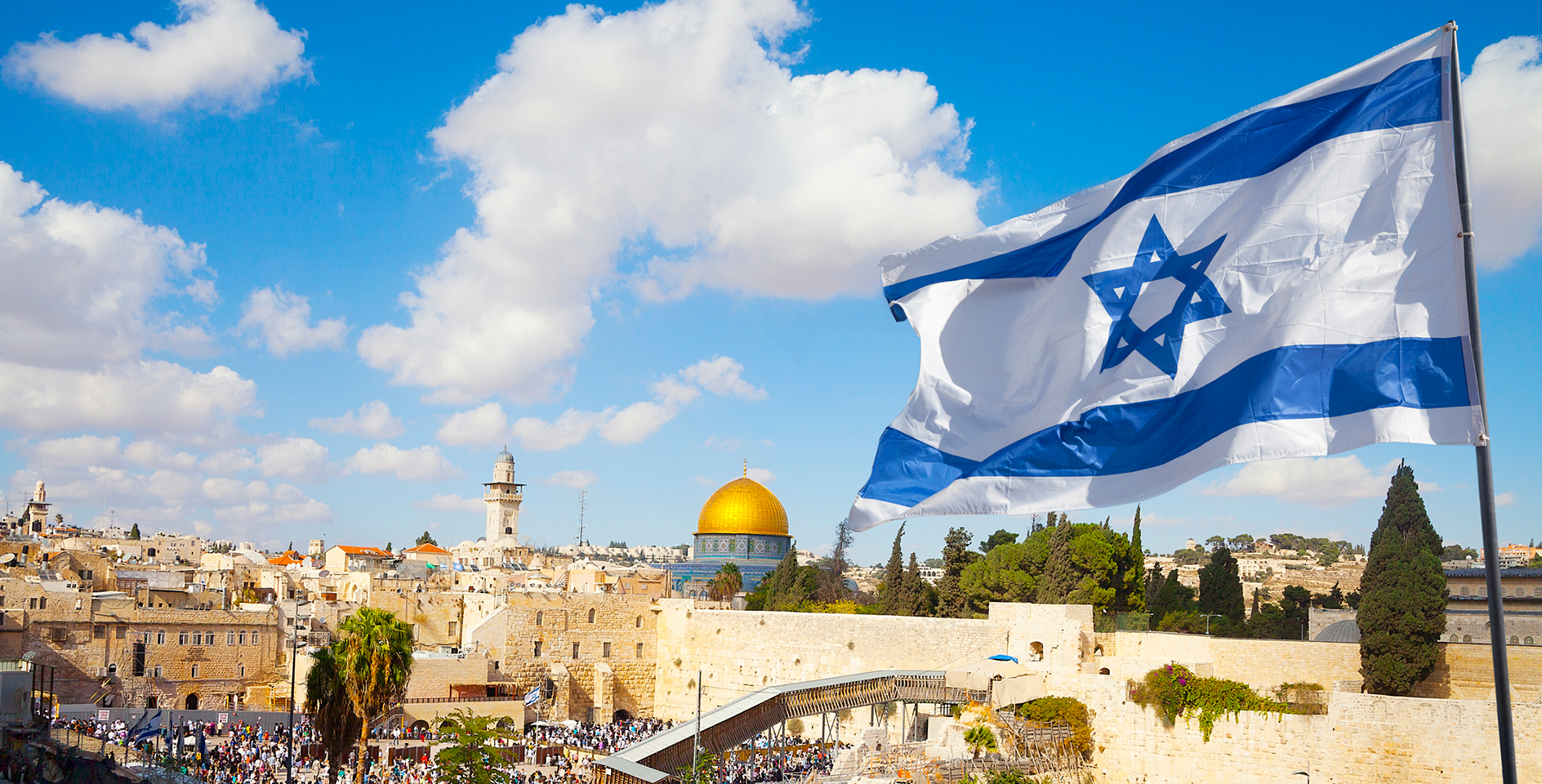What is Jerusalem Day?
Jerusalem Day (Hebrew: Yom Yerushalayim) is an Israeli national holiday that celebrates the unification of Jerusalem under Jewish sovereignty, an event that occurred during the Six Day War in 1967.
On May 12, 1968 the government of Israel chose the 28th of Iyar (the eighth month of the civil and second of the religious year) as a day that “symbolizes the continued historical connection of the Jewish People to Jerusalem.” Jerusalem Day became an official state holiday on March 23, 1998 when the Knesset (Israel's parliament) passed the second and third readings of the Jerusalem Day Law establishing the official date of the national holiday. This year the holiday begins on the evening of May 23 and ends at sunset on May 24.
Why is the city of Jerusalem so significant?
Jerusalem is one of the oldest cities in history—and one of the most contested. According to historian Eric H. Kline, the city has been destroyed at least twice, besieged 23 times, attacked an additional 52 times, and captured and recaptured 44 times. Currently, both the State of Israel and the Palestinian Authority claim Jerusalem as their capital.
What was Jerusalem like before 1967?
After being anointed king of Israel, King David captured the city of Jerusalem from the Jebusites and made it the nation’s capital (2 Samuel 5:3-6). The city remained the capital of Israel until the Romans sacked it in AD 70. From that point until 1948, various non-Jewish factions controlled the city.
The 1947 United Nations Partition Plan for Palestine proposed to divide the city between Israel and Palestine, but before it could go into effect a civil war broke out in the region. The war of 1948 resulted in the division of Jerusalem, with the Israelis controlling West Jerusalem and the Jordanians controlling East Jerusalem, including the area known as the Old City which contains some of the most holy sites of Christianity, Islam, and Judaism.
The city remained divided until between Arabs and Jews until the Six Day War.
What happened during the Six Day War?
For two decades after the 1948 Arab–Israeli War, tensions remained between Israeli and its Arab neighbors. In May 1967, Egypt, Jordan, and Syria began mobilizing their military forces and initiated a naval blockade of Israeli shipping and seaports. Israel responded by preemptively attacking Egyptian airfields and destroying 90 percent of Egypt’s air force. In the first three days of the war Israel managed to capture the Gaza Strip, the Suez Canal, and the Sinai Peninsula.
Although Israel had asked Jordan to remain neutral in the city of Jerusalem, the Jordanians began to attack West Jerusalem. On June 7, Israel captured all of Jerusalem and accepted a ceasefire with Jordan.
Do Muslims have access to their holy sites?
Since the capture of the Old City, Israel has controlled access to two of Islam’s most holy sites—Al Aqsa Mosque and the Dome of the Rock. Muslims in Israel have full access to these sites, though Palestinians in the West Bank have restricted access into the city.
Why is Israeli control of Jerusalem still considered controversial?
In 1980, Knesset adopted the “Jerusalem Law” which stated that, “Jerusalem, complete and united, is the capital of Israel” and that “Jerusalem is the seat of the President of the State, the Knesset, the Government and the Supreme Court.”
The United Nations Security Council, which had long criticized Israeli annexation of the city, responded by adopting Resolution 478. The resolution declares the Jerusalem Law to be a violation of international law and calls upon UN member states to withdraw their diplomatic missions from the city.
The resolution passed 14-0, with the United States abstaining.
Will the U.S. embassy be moved to Jerusalem?
Since the formation of the modern state of Israel in 1948, the United States has maintained its embassy to Israel in Tel Aviv. The United States does not formally recognize Jerusalem as the capitol of Israel; the official U.S. policy is that the final status of Jerusalem must be resolved through peace negotiations.
After 1967 and the reunification of Jerusalem, there have been growing calls to move the U.S. embassy from Tel Aviv to Jerusalem. In 1995, Congress passed the Jerusalem Embassy Act, calling for the United States to move its Embassy from Tel Aviv to Jerusalem. The bill was not signed by President Clinton, who had himself promised to move the embassy, but it passed with a veto-proof majority. Despite this, no administration has moved the embassy to Jerusalem.
A move of the embassy would be understood in political and religious terms in the region. Politically, the move would be understood as a recognition of Israel's sovereignty over the entire city of Jerusalem, including East Jerusalem. Religiously, the move would be understood by some parts of the Muslim world as the recognition by the U.S. of Israeli sovereignty over Al Aqsa mosque, the third holiest site in Islam.
President Trump – and all Republican candidates for President since Clinton – promised to move the embassy to Jerusalem. So far, the President has delayed fulfilling this promise, citing concerns about security and the sensitivity of peace negotiations.










